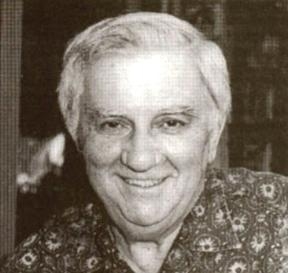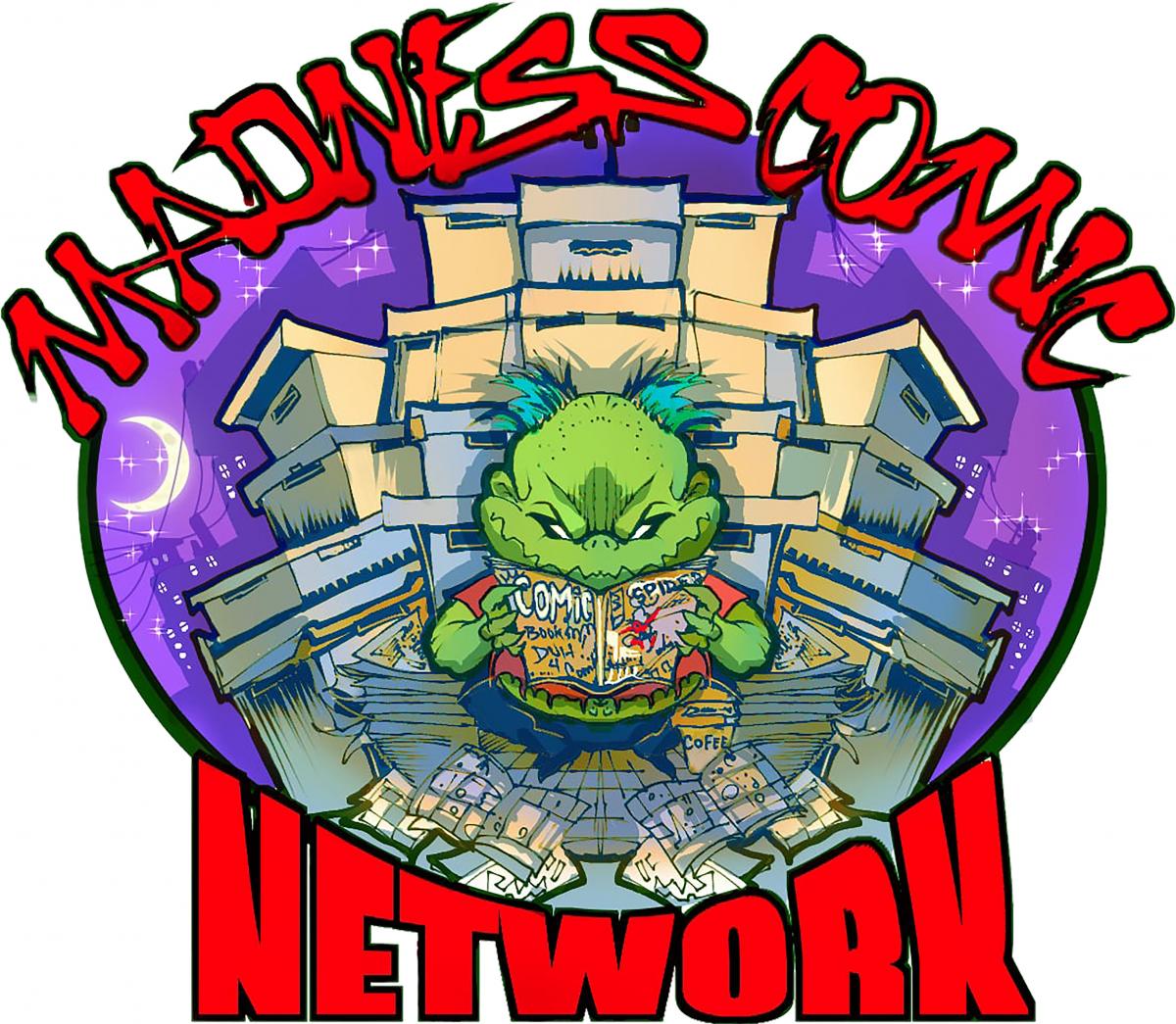Dan DeCarlo: Archie, Josie and Dan
FTC Statement: Reviewers are frequently provided by the publisher/production company with a copy of the material being reviewed.The opinions published are solely those of the respective reviewers and may not reflect the opinions of CriticalBlast.com or its management.
As an Amazon Associate, we earn from qualifying purchases. (This is a legal requirement, as apparently some sites advertise for Amazon for free. Yes, that's sarcasm.)

When discussing the Grand Old men that made the comics industry what it is today, you can't go too long without bringing up Dan DeCarlo, one of the originals of the Timely bullpen and a mainstay at Archie for decades. His creation of Josie for Archie Comics, and the Josie and the Pussycats movie, stirred up a controversy that once again brought creator's rights to the forefront of industry headlines.
Dan isn't with us any longer. Sadly, he passed on, too short a time after this phone conversation. But I learned more about the golden age of comics from Dan than I ever did from any book or magazine article.
Godspeed, Dan DeCarlo.
Your first work in the comics industry was with Timely Comics (which later became Marvel). What were you working on with them?
I started working with Timely in 1946. Stan Lee hired me.
It's sort of a funny story. I brought samples in, because I didn't have any comic book samples, and I brought all these illustrations that I had influenced by Norman Rockwell and a couple of the other big boys. That's all I had, that's all I brought. He said, "Even though this stuff is all copied, I like it." [Laughs] And it wasn't copied--it was the best effort I made.
The first book that they gave me was Jeannie, a young teenager. I went on with her maybe ten books. They used to call me "The Jeannie Machine" because that was all Stan used to give me, was Jeannie, Jeannie, Jeannie. Then he took me off Jeannie and he gave me Millie the Model. That was a big break for me. It wasn't doing to well and somehow when I got on it became quite successful.
I understand you also created the character of Willie Lumpkin.
Oh yeah, that was later on. Stan and I did that together, a comic strip we finally got syndicated. What would you like to know about it?
Isn't he the same Willie Lumpkin that shows up regularly as the Fantastic Four's mailman?
Oh, I haven't seen the Fantastic Four. That's news to me, that's very interesting.
Willie Lumpkin of the comic strip was a very short guy, and paunchy. That's how Stan gave him the name "Lumpkin," from the paunchiness. He used to just walk around on his beat delivering the mail, and all the characters supplied the humor around him.
What made you first want to get into doing comics?
What made me want to go into doing comics was I was working as a laborer with my father, a gardener. I was married, my wife was pregnant, and I just wanted to get out of the laboring bit and try to become an artist. I liked that all my life. When I found this opportunity to answer the ad, I got the job and I've been there ever since.
When did you begin with Archie, and how established were they at the time.
They were well known, a successful company. While I was still working with Timely, I was looking for extra work. I went down to see Harry Shortman and he gave me a job.
The pay wasn't too good, but I did it and he liked it--but I didn't go back right away. Finally after two or three weeks go, he called me up and wanted to know what happened, why I wasn't around. I said, "Well, you know I'm very busy." We had gone freelance then--they had shut Timely down. Wertham, you know? Then we were all freelancers. But I had Millie the Model, I had My Friend Irma, Big Boy. I had a lot of work, and I wasn't doing too much for Harry Shortman and Archie, and he wanted to know why.
I told him, "The people that I'm working for now let me do my own thing. But when I do work for you, it's 'Draw like Bob Montana.' And it's hard to look at your reference, and then back at your own page. It's very slow, and very tedious and I didn't like it too much." He said, "Come on in, and you can draw any way you like." That made me go back with him.
Archie was in the fold of all the other publishers that I was working for, and I was probably averaging one story a week from them.
You mentioned Frederick Wertham. How much of an impact did his book, Seduction of the Innocent, have on your career at that time?
He practically wrecked the whole business. There were eleven publishers in New York City, and when it was all over, I think it went down to four or five, and then finally just the three of them, the Big Three.
But it wasn't all that bad. A lot of the good men went into advertising. One good friend of mine went on to become very high executive at Young& Rubicam. So there were some advantages to the guys that got laid off. Some of them made it bigger in advertising than they were doing in comics.
When you came up for the idea of "Here's Josie", it was originally intended as a newspaper strip. What made you decide to go the Archie route with it?
When Publishers Syndicate in Chicago got interested in Willie Lumpkin-- (It was really Barney's Beat at the time. They insisted I change the name. They didn't think a cop would be sympathetic, so that's when the mailman idea came in.)--I was also hustling my own strip and trying to get it published. Before we got to Publishers Syndicate, I went to United Features in New York with two strips--Barney's Beat and Josie. [United] told me they liked them both, and they'd like to see more samples, because I didn't bring much. I brought maybe six dailies of Barney's Beat and six dailies of Josie.
That posed a problem for me. I knew I couldn't handle both strips and still keep up with the comic book work, because a syndicated bit was very risky. So, I decided to shelve Josie, and concentrated on Willie Lumpkin.
Once publishers got interested in it, it was a year in developing, and it was launched, I think, in 1960. But Willie Lumpkin didn't last long--it only last a little better than a year, maybe a year and a half. I quickly submitted the Josie strip back to the publishers and Harold Anderson, and he sent it back and said, "It's not what we're looking for, Dan, but keep up the good work," or words of that kind.
Then is when I decided to take it to Archie to see if they could do it as a comic book. I showed it to Richard Goldwater, and he showed it to his father, and a day or two later I got the OK to do it as a comic book.
When you created Josie, are we talking the whole ball of wax--everyone from Alan M. to Sebastian the cat? The Pussycats band?
Well, you're a little ahead of it. When they agreed to make it a comic book--because I only had six dailies, and there was just Josie, Melody and Pepper, the three girls. Then I submitted a model sheet, and I designed all the other characters. I designed Albert; I designed the big hulking guy (not Alan M., he came later).
I designed all the characters, anyway, and Frank Doyle was doing all the writing. I didn't have any more input on what direction they were going to go with Josie.
After about twenty issues of Josie, they decided to pay me.
(Laughs) Finally after twenty of them, eh?
Yeah, five and a half percent of their profits. That lasted for a while and then they dropped it. They dropped the percentage a year later, maybe two, when Josie went on to Hanna-Barbera. They stopped the payments and they dropped the credits.
After twenty issues, Richard (his name is Dick), he just pasted "Dick and Dan" on the strips and on the books. But that was after twenty issues, and it went along with "Dick and Dan's Still Josie" and then became Josie and the Pussycats and he still kept putting his name on there. That, he felt was his input on it, by taking it into his father.
He carried it across the room, so he's the co-creator?
Yeah! Peter David had a great line on that very same thing. He said, "If the Pope comes to Michelangelo and says 'I want you to paint the ceiling,' and Michelangelo does it, who's the creator, the Pope or Michelangelo?"
That's the problem today: Who is the creator? Because someone who comes in and says, "I want to do a girlie book," and you come up with the book, you come up with all the characters and give them all the names, they still call themselves the creators. Because they feel that without them telling you to do this, you wouldn't have had the characters that you have, you wouldn't have the book that you have.
So you're problems with Josie came well before the upcoming movie, but actually came up back when Hanna-Barbera did the animated series.
Right, yes. We had the "work-for-hire" thing. If you read one of those--I don't know if it was the same industry-wide, but at Archie it was tough. I had two kids in college, and I'd just bought a house two years before. I felt that if I didn't sign it, I would have been canned. And I would've been canned!
It's being rumored on the Internet that Archie Comics offered you $35,000 for the rights to the Josie film deal.
They did make an offer that my lawyer told me about it. It was up to me to agree, and he said he didn't think it was enough, and I went along with him. He made a counter-proposal: he wanted $100,000, and four-percent of the Josie merchandising, and they turned that down. That's when the lawsuits really went into high gear.
And that lawsuit is still pending?
Yes.
And while this was all going on, Archie canned you?
Yes. They canned me in May.
Was this because of the lawsuit?
That's what I think also. However, [someone] said that the reason they fired me was that when I used to walk in, I used to make the art department--the work is the hardest in the art department--uncomfortable with my 'hostile attitude' so they had to let me go.
I understand that since that time you've done some work for Bongo Comics. Is that your new home, or will we be seeing Dan DeCarlo artwork in other venues as well?
Oh yes, yes. I'm getting around to accepting more work. I call myself semi-retired, because all I want to put in is three or four days a week. From that hectic job I had before the firing, it's a real luxury to have three or four days to become a honey-doer. You know what a honey-do is, don't you? (Laughs)
I'm intimately familiar with the concept of 'Honey, do this,' and 'Honey, do that.'
Yeah, that makes you glad to get back to the board, you know?
Last question--can you please solve for us the ages-old controversy for once and for always: Betty or Veronica?
(Laughs) You know, I'm always asked that question! But Betty is by far the more popular one.


